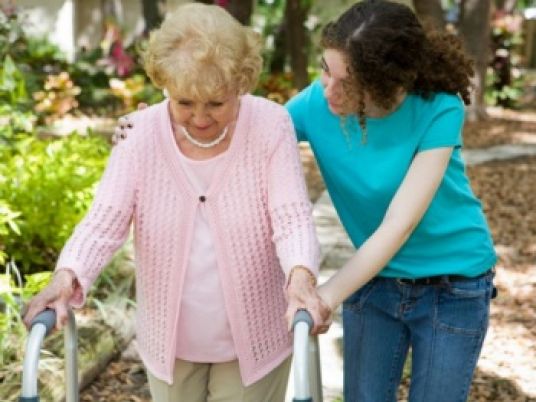
Helping others can lower our daily stress levels according to a new study by Yale University School of Medicine.
The research, which was supported by grants from the US's National Institute on Drug Abuse and the National Institute of Mental Health, showed that although we often turn to others for help when we are stressed, it is by doing the helping that we can better cope with and reduce our daily stress levels and worries.
To conduct the research, the team looked at a group of 77 adult participants, ranging from 18 to 44 years old, and asked them to use their smartphones to report on their feelings and experiences on a daily basis.
Every night during the 14-day study, each participant was asked to complete an assessment of their day, reporting any stressful life events that may have occurred, with the total number of events giving the researchers a measure of daily stress.
Participants were also asked if they had helped anyone during the day, such as holding open a door for someone, helping with homework, or even just offering help.
They were also asked to rate their mental health each day on a scale of 0 (poor) to 100 (excellent), and to complete a 10-item form of the Positive and Negative Affect Scale to evaluate their emotions that day.
From the surveys, the researchers saw that the more participants engaged in helpful behaviours, the higher they rated their daily well-being and the level of positive emotions, and the better their response to daily stress. In contrast, those who participated in a low number of helpful acts reported a lower level of positive emotion and a higher level of negative emotion when responding to everyday stress.
Commenting on the findings, Dr. Emily Ansell, lead author on the study, said "Our research shows that when we help others we can also help ourselves. Stressful days usually lead us to have a worse mood and poorer mental health, but our findings suggest that if we do small things for others, such as holding a door open for someone, we won't feel as poorly on stressful days."
She suggests taking the findings into account to help make the upcoming, and sometimes stressful, holiday season a little easier, "Think about giving directions, asking someone if they need help, or holding that elevator door over the next month. It may end up helping you feel just a little bit better."
The findings were published in Clinical Psychological Science, a journal of the Association for Psychological Science.
